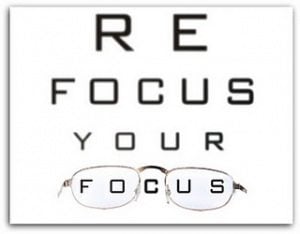The task of picking a business structure can seem daunting at first glance. The multiple choices available and lack of instructions that comes with the decision don’t exactly make things any easier either. But making the choice really lies in knowing the ins and outs of your own business, which is easy because, well, it’s your business!
So how do you know which business structure will fit your start-up and take care of its needs? Here is the lowdown on the four main business entities available and the types of fields they’re best suited for:
Sole Proprietorship
The sole proprietorship is a great option for ‘business beginners’ as it requires less paperwork to file. Another great incentive is that when tax season rolls around all the owner needs to do for the business is report profits or losses. The only catch is that with such a simplistic nature comes the attachment of your personal assets, meaning if your business fails, you could lose your personal property to pay back the debt.
The type of business that would be suited for a sole proprietorship: the work from home mom. With an entirely separate set of daily duties to accomplish besides the typical work tasks, the less paperwork to take care of for busy mamas the better. Just be sure to be extra careful to stay ahead of the game debt-wise to take care of your personal assets!
Partnership
If you like what you see in a sole proprietorship but are running your business with another person, a partnership may be just what you’re looking for. Just as with a sole proprietorship, your personal assets (along with your partner’s) will be tied to the business. To avoid tying up your personal assets, you could make a limited partnership as long as neither partner manages the business’ affairs. This will also lower personal liability for business debts.
The type of business that would be suited for a partnership: a mobile app development company. Any sort of business that would be run by a bigger team than one main man, like a company that specializes in apps, would be a good candidate for a partnership. Plus, you’d have the lowered personal liability aspect going for you that would come in handy for any sort of development business.
Corporation
This entity is heavier on the paperwork side, but with a corporation comes protection for your personal assets because you are creating a separate entity from yourself. This can make accounting more extensive but you get to pay taxes based on what you choose to pay yourself from the corporation.
The type of business that would be suited for a corporation: retail. Product-based businesses such as retailers typically require more money in the beginning to get the products being sold up and running, whereas a service-based business can typically just jump right in.
Limited Liability Company
LLCs are the entities with the most options available. You get to choose your tax structure, but your personal assets will still be protected. Owners may also take the tax structure of a corporation, where the corporation’s income is taxed, or the pass-through structure of a partnership or proprietorship where personal income includes business profits and losses and then is taxed based off that. Not all states may be okay with this sort of flexibility, so be sure to contact a professional from the state in which you form your company to double check.
The type of business that would be suited for an LLC: a small restaurant. Just like the menu that offers a wide range of options to choose from, a restaurant would best benefit from going with an LLC structuring. Only the money that was put into an LLC is the money held at risk so in the event of a lawsuit that could potentially take away your restaurant under other business structures, the same legal action may not be taken under an LLC.






